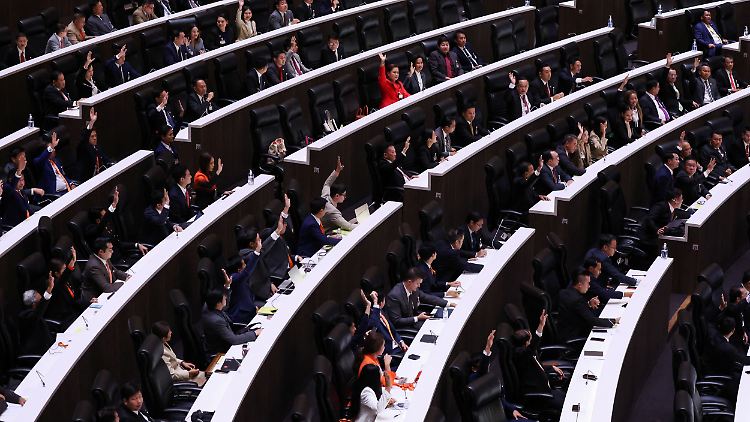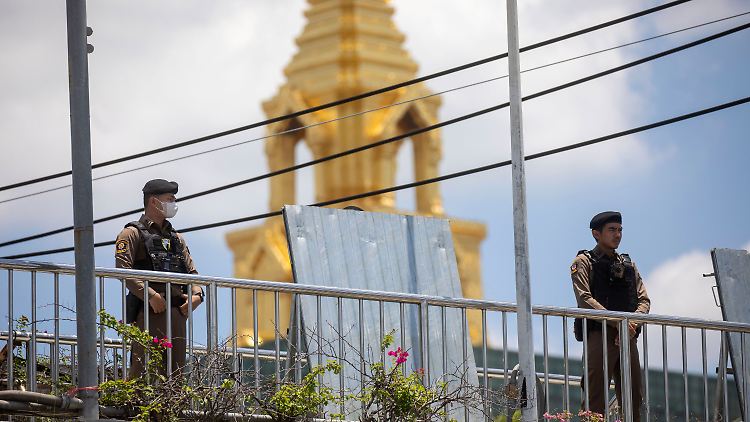Setback in Thailand
Military prevents pro-democracy prime minister
07/13/2023 5:39 p.m
In Thailand, many are hoping for the first pro-democracy prime minister, but the military is positioning itself against the candidate Pita in the crucial parliamentary vote. A debate on changing the lese-majesté law may also have cost him important votes.
In the election of the new prime minister in Thailand, the pro-democracy lead candidate Pita Limjaroenrat clearly missed out on a simple majority in parliament. The 42-year-old from the progressive opposition party Move Forward Party received 324 votes out of a total of 749. A simple majority would have required 375 votes.
Parliament normally has 750 seats in the kingdom, but one senator resigned shortly before the vote. Pita was the only candidate. His party clearly won the parliamentary elections in mid-May and then formed a coalition of eight parties. He thus has a clear majority in the House of Representatives – but these votes were not enough due to a special constitutional clause.
The powerful military that has been in power until now changed the constitution in its favor after the 2014 coup. Since then, candidates who are not affiliated with the army have had a hard time getting into office: in addition to the 500 newly elected MPs, there are also 250 unelected senators appointed by the military who choose the prime minister. Until recently, it was unclear how many senators would vote for the Harvard graduate.
Debate on lèse-majestity law
The vote was preceded by a six-hour debate, the focus of which was the Move Forward Party’s plan to change the controversial Lèse Majesté law: the popular holiday destination punishes lese-majesté more severely than almost any other country in the world. The law provides for long prison sentences, and very young Thais are arrested again and again. There have been protests against this in the population for a long time. Many conservative politicians want to stick to the law – and therefore refused Pita her vote.
In the course of the debate, Pita once again tried to convince as many MPs as possible. “This is not a vote for me or for the Prime Minister of Thailand, but a historic opportunity to return to normal in Thailand,” he said. Move Forward Secretary-General Chaithawat Tulathon said: “Millions of voters are asking themselves: if we don’t get the head of government and the government that a majority voted for, what are we even holding elections for?”
Police fear protests

After hours of discussion, Pita failed to get the necessary votes from MPs and military-appointed senators.
(Photo: REUTERS)
Pita supporters had gathered in front of Parliament to watch the vote. Protests are feared. The police set up a no-protest zone around the Parliament building. Voting is to be held again next Wednesday and possibly also on Thursday. According to the media, another candidate could also be nominated as Pita – or Pita will be set up again. According to observers, however, he would then have to make concessions to his opponents, for example on the subject of Lèse Majesté.
It was only announced on Wednesday that Pita could lose his parliamentary membership. The electoral commission formally granted the request to ask the constitutional court for his immediate suspension. The background is investigations into alleged shares in a media company that he is said to have owned during his candidacy – which is prohibited in Thailand for participants in an election.
Pita could still be elected prime minister. The Bangkok Post quoted him as saying: “The media company in question has been closed for ages and I only held the shares as an executor of my father’s estate.”
